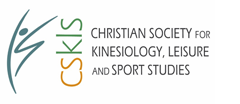Location
Solheim 104
Start Date
6-6-2024 10:15 AM
End Date
6-6-2024 11:00 AM
Description
There are quite a few topics of discussion that can be difficult within the curricula for Recreation and Leisure, Health Professions, Sport and other disciplines within CSKLS. These might include environmental stewardship, immigration, political funding for programs, LGTBQ matters, racial discrimination, and DEI. We will explore some approaches gleaned from secular pedagogy sources. We will present useful techniques for planning discussions, facilitating, and following up after discussion. We will discuss differences between teaching at a public institution and a faith-based institution. The presenters will give a couple of examples from their classes for discussion. Attendees will be encouraged to engage in small-group discussions about difficult topics in their own classes—what is working, what is not as they facilitate difficult discussions.
Learning Outcomes:
Attendees:
- will be able to identify at least three best practices for discussing difficult topics in the classroom.
- will be able to describe the unique challenges of teaching difficult topics at faith-based institutions.
- will be able to take one new approach back to their classroom.
Recommended Citation
Connally, Dale and Waddell, David, "Tough Conversations in the Classroom" (2024). CSKLS Annual Conference. 3.
https://digitalcollections.lipscomb.edu/cskls-conference/2024/Wednesday/3
Included in
Kinesiology Commons, Leisure Studies Commons, Sports Management Commons, Sports Studies Commons
Tough Conversations in the Classroom
Solheim 104
There are quite a few topics of discussion that can be difficult within the curricula for Recreation and Leisure, Health Professions, Sport and other disciplines within CSKLS. These might include environmental stewardship, immigration, political funding for programs, LGTBQ matters, racial discrimination, and DEI. We will explore some approaches gleaned from secular pedagogy sources. We will present useful techniques for planning discussions, facilitating, and following up after discussion. We will discuss differences between teaching at a public institution and a faith-based institution. The presenters will give a couple of examples from their classes for discussion. Attendees will be encouraged to engage in small-group discussions about difficult topics in their own classes—what is working, what is not as they facilitate difficult discussions.
Learning Outcomes:
Attendees:
- will be able to identify at least three best practices for discussing difficult topics in the classroom.
- will be able to describe the unique challenges of teaching difficult topics at faith-based institutions.
- will be able to take one new approach back to their classroom.



Christian Perspective of Presentation
And do not be conformed to this world, but be transformed by the renewing of your mind, so that you may prove what the will of God is, that which is good and acceptable and perfect. Romans 12:2
This sounds like such an easy guideline for this session. Yet we walk a fine line as educators between staying true to our interpretation of the Bible, without alienating other believers who differ in their perspectives—much less how we engage non-believers. We also need to prepare our students to thrive in a variety of work settings after graduation—both in the public and private sectors. There are no magic bullets in this session. But we hope for a meaningful discussion on how to teach diverse groups of students with an attitude of grace and love.